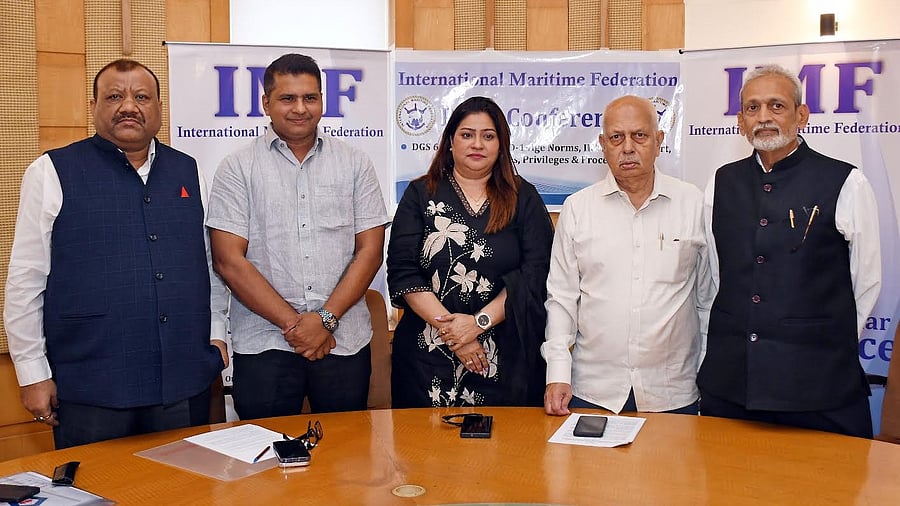
IMF members for the shipping meet
Credit: Special Arrangement
Mumbai: Over 700 Indian-flagged vessels, many serving coastal and near-shore routes, could be retired prematurely due to age-based restrictions imposed by the Directorate General of Shipping (DG Shipping), threatening the jobs of more than 20,000 seafarers, according to the International Maritime Federation (IMF).
Additionally, ripple effects are expected to impact over 100,000 others—from Recruitment and Placement Services Licence (RPSL) companies, agencies, and ship operators to port workers, training institutes, and logistics providers.
Shipping industry leaders, seafarer advocates, shipowners, policy experts, and technology officers, under the banner of the IMF, have called for urgent policy reforms to ensure the survival of the sector. They cite DG Shipping’s Order 6/2023 on vessel-age norms and penalty mechanisms, which entail the scrapping of 20-year-old vessels.
IMF Chairman Vivek Rastogi presided over a conference in Mumbai to discuss the fallout on the Indian shipping industry.
“India is home to more than 250,000 active seafarers and supports an estimated 3.5 million livelihoods directly or indirectly,” said Capt Sudhir Subedar, Advisor to the IMF and board member of the DGS.
"A comprehensive global dataset of over 130,000 commercial vessels and 370,000 inspections found that older vessels—especially those that have operated safely for 25+ years—often demonstrate better safety records than newer ships,” said Atul Jadhav, Director of the IMF and President of the Goa Barge Association.
Panellists pointed out that 28–30-year-old vessels continue to serve coastal and offshore routes efficiently, with full classification approvals. Setting an arbitrary cap undermines their seaworthiness and removes essential capacity from India's logistics supply chain.
Capt Ramji S Krishnan, a Sloan Fellow from London Business School, remarked during the event: “The world doesn't sail by age, it sails by condition. If our classification societies and safety inspections say a ship is fit, then who are we to call it unfit just because it's old?”
Capt Raj Sinha, Chairman of Marine Solutions and former Chairman of the IMF, said that instead of adopting a consultative mechanism, RPSL companies are penalised, blocked on portals, and fined heavily—often without the opportunity for appeal.
“The employment fallout of these policies is not confined to ports or offices. Entire coastal economies, especially in states like Gujarat, Maharashtra, Kerala, and Tamil Nadu, depend on small- to mid-sized Indian-flagged vessels,” the panellists said.